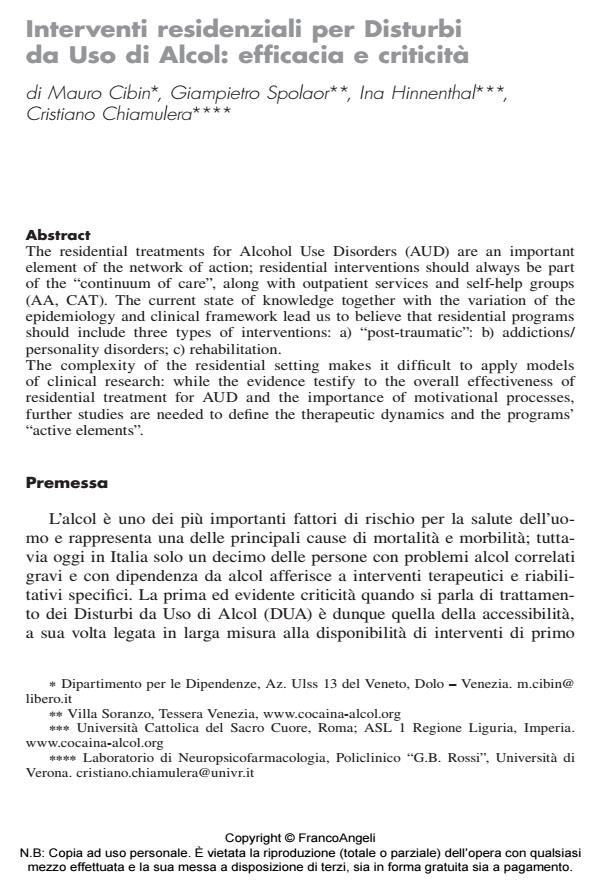Interventi residenziali per Disturbi da Uso di Alcol: efficacia e criticità
Titolo Rivista SICUREZZA E SCIENZE SOCIALI
Autori/Curatori Mauro Cibin, Giampietro Spolaor, Ina Hinnenthal, Cristiano Chiamulera
Anno di pubblicazione 2014 Fascicolo 2014/3
Lingua Italiano Numero pagine 14 P. 88-101 Dimensione file 133 KB
DOI 10.3280/SISS2014-003007
Il DOI è il codice a barre della proprietà intellettuale: per saperne di più
clicca qui
Qui sotto puoi vedere in anteprima la prima pagina di questo articolo.
Se questo articolo ti interessa, lo puoi acquistare (e scaricare in formato pdf) seguendo le facili indicazioni per acquistare il download credit. Acquista Download Credits per scaricare questo Articolo in formato PDF

FrancoAngeli è membro della Publishers International Linking Association, Inc (PILA), associazione indipendente e non profit per facilitare (attraverso i servizi tecnologici implementati da CrossRef.org) l’accesso degli studiosi ai contenuti digitali nelle pubblicazioni professionali e scientifiche.
The residential treatments for Alcohol Use Disorders (AUD) are an important element of the network of action; residential interventions should always be part of the "continuum of care", along with outpatient services and self-help groups (AA, CAT). The current state of knowledge together with the variation of the epidemiology and clinical framework lead us to believe that residential programs should include three types of interventions: a) "post-traumatic": b) addictions/ personality disorders; c) rehabilitation. The complexity of the residential setting makes it difficult to apply models of clinical research: while the evidence testify to the overall effectiveness of residential treatment for AUD and the importance of motivational processes, further studies are needed to define the therapeutic dynamics and the programs’ "active elements".
Mauro Cibin, Giampietro Spolaor, Ina Hinnenthal, Cristiano Chiamulera, Interventi residenziali per Disturbi da Uso di Alcol: efficacia e criticità in "SICUREZZA E SCIENZE SOCIALI" 3/2014, pp 88-101, DOI: 10.3280/SISS2014-003007